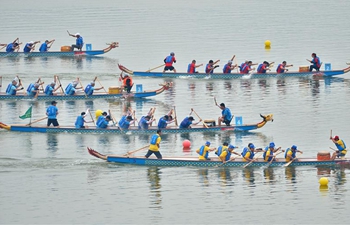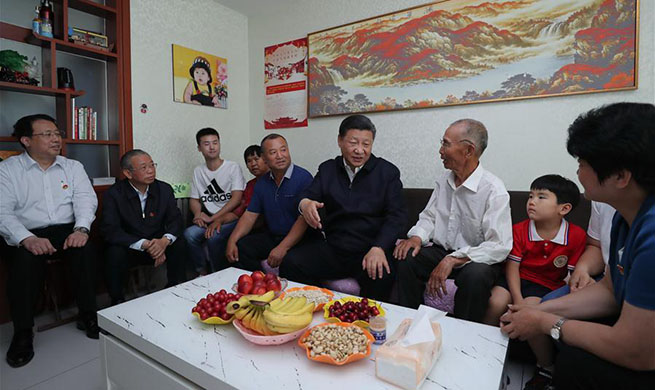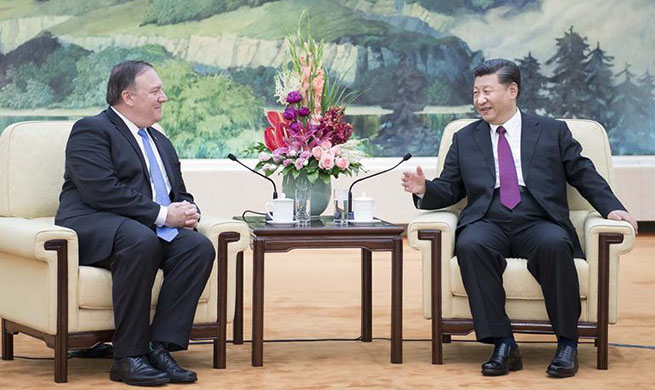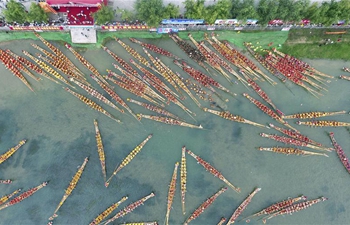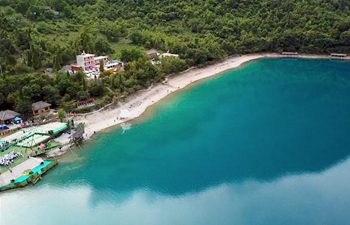HANOI, June 15 (Xinhua) -- The National Assembly of Vietnam has adopted seven new laws, including those on cyber security and sport betting.
The laws cover cyber security, measurement and mapping, denouncement (amended), competition (amended), national defense (amended), physical education and sport (amended), Le Bo Linh, deputy general secretary of the country's top legislature, told a press conference.
After seriously considering public opinions, most of legislators approved the bill on cyber security, which is designed to ensure national cyber security, and legitimate rights and interests of organizations and individuals in Vietnam in line with practical situations, he said.
Nguyen Thanh Hong, a permanent member of the Defense and Security Commission of the National Assembly, explained that some people worried that the new law on cyber security, which requires Vietnamese and foreign online service providers to store data of their Vietnamese users, will increase the providers' operation costs because they will have to relocate their data centers to the country.
But the Vietnamese requirement is similar to that in many countries in the world, and necessary to protect interests of both providers and their customers as the data is a kind of big resource or asset, Hong said, noting that 18 nations have made the requirement, and that the European Union in May asked social network giant Facebook to store its users' data in the block's member states.
Under the new law, which will take effect on Jan. 1, 2019, the providers have to supply a cyber security unit under the Vietnamese Ministry of Public Security with their users' information to serve crime investigation. Foreign firms are required to establish branches or representative offices in Vietnam.
"The new law's introduction will cause certain difficulties for online service providers and their customers, such as higher costs and less privacy. But with it, state agencies and enterprises will be more responsible for preventing and combating the bad on the internet and they will do it better," a former senior editor of Vietnam's leading daily newspaper Tien Phong (Pioneer) told Xinhua on Friday.
"Meanwhile, individuals will behave in a more responsible manner on cyberspace. Crimes and wrongdoings committed online will fall," said the editor.
Besides the law on cyber security, the two laws on physical education and sport, and on national defense captured public attention because they have articles relating to special economic activities.
For the first time, sport betting, which is still illegal in Vietnam now, has been mentioned in a Vietnamese law. Under the revised Law on Physical Education and Sport, firms are allowed to provide sport betting services after meeting relevant strict requirements and being licensed by authorized state agencies.
Also under the law, the currency used for betting and payouts is Vietnamese dong, and the Vietnamese government is to decide the list of sport events, including international football matches such as FIFA World Cup and AFF Suzuki Cup eligible for betting in Vietnam. According to a governmental decree on managing betting services on horse and dog races, and international football matches, betting on international football will be conducted on a trial basis.
All forms of gambling, including sport betting, except in government licensed casinos, are illegal in Vietnam. Anyone found to be in violation of the law is subject to heavy fines and/or a severe prison sentence.
According to Vietnam's Penal Code, bettors who make a bet of 2 million Vietnamese dong (some 88 U.S. dollars) or more, and bookies whose ring has at least 10 involved people will be accused of criminal offences.
"After the revised Law on Physical Education and Sport takes effect on Jan. 1, 2019, people in Vietnam can make bets via services provided by licensed firms," Nguyen Hanh Phuc, general secretary of the National Assembly and its office's chairman, told the press conference.
Under the revised Law on National Defense, the Vietnamese Defense Ministry will develop economic-defense and supervise the operation of businesses that serve national defense and military units that have been given defense and economic tasks. The law also asks agencies, organizations and individuals to combine socioeconomic development and national defense while conducting production, business and investment activities.
Not only newly adopted laws, nine bills which were just discussed by law-makers also drew great public attention, especially the bill on special administrative and economic units of Van Don, Bac Van Phong and Phu Quoc.
Legislators agreed on Monday not to adopt the bill at the 5th session as expected. Earlier, the Government Office asked the National Assembly to delay approving it with more time for research and completion until the next session.
Special cases, that could lease land up to 99 years for production and business in the three special economic zones of Van Don in northern Quang Ninh province, of Bac Van Phong in central Khanh Hoa province, and of Phu Quoc in southern Kien Giang province, will not be included in the bill.
During the fifth session, the top legislature also adopted resolutions, including those related to law-making agenda for 2019, state budget settlement and oversight on the implementation of policies on managing and using state-owned capital and assets.






